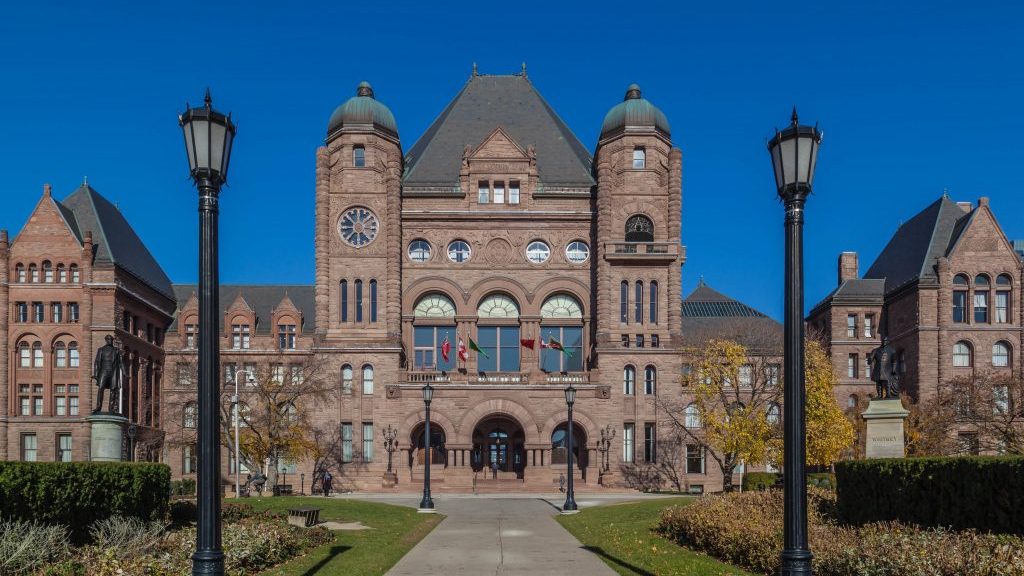The Residential and Civil Construction Alliance of Ontario (RCCAO) has issued a response to the Doug Ford government’s recently received “line-by-line” analysis of government spending in which the RCCAO praises the report’s focus on evidence-based spending and its recommendation to use data and analytics to evaluate project return on investment (ROI).
EY Canada’s review of government spending, titled Managing Transformation — A Modernization Action Plan for Ontario, was released Sept. 25. The report, at 50 pages and with a primary focus on five major spending programs from 2002 to 2018, isn’t exactly the line-by-line study it purports to be, commented RCCAO executive director Andy Manahan, but it did offer useful opportunities for the alliance to engage with the government on next steps in developing infrastructure policy, he said.
“There wasn’t anything directly on infrastructure,” said Manahan. “But we decided there were some principles EY put forward in their recommendations that were worthwhile looking at.”
EY found provincial debt over the previous government’s term in office almost doubled, increasing 87 per cent or $158 billion to $338 billion, most of it in transfer payments going to the broader public sector including government agencies.
“Ontario has the highest subnational debt of any jurisdiction in the world,” stated the government release.
“The line-by-line review will establish a more sustainable baseline to ensure a fiscally healthy government for future generations.”
The RCCAO commented, “We at the RCCAO were pleased to read the findings and recommendations of the EY line-by-line review, in relation to getting the best value from our large capital expenditures on public infrastructure and finding innovative ways to finance them.”
The RCCAO statement, addressed to Premier Doug Ford and dated Sept. 27, referred to two RCCAO reports that argued for a more business-like approach to the selection and delivery of infrastructure projects and to anticipate infrastructure needs of the future.
I know there won’t be much public money, so I think there will be a role for private sector financing
— Andy Manahan
Residential and Civil Construction Alliance of Ontario
One cost-effective way to deliver infrastructure, the RCCAO said, is through the expansion of the public-private partnership (P3) model to the municipal level.
“Going back politically, it was the previous PC government over 15 years ago that brought in SuperBuild, and I think they are familiar and comfortable with the P3 model,” said Manahan.
He said the RCCAO has confidence the new PC government will maintain the infrastructure spending programs established by the previous government, although there will be financing pressures.
“Certainly Ford on the campaign trail and after being elected said that infrastructure is very important so I’ll take that as a given, but I know there are going to be some challenges, and I know there won’t be much public money, so I think there will be a role for private sector financing in some way, shape or form on delivering some infrastructure projects,” he said.
Manahan noted that in a meeting he had with Infrastructure Minister Monte McNaughton, the new minister seemed to recognize the value of basing transit decisions on research, keeping politics out of it.
The RCCAO statement referred to two EY recommendations on data analytics measuring performance and ROI.
“On the transit side there have been comments from the premier on a subway to Pickering, that is not an evidence-based approach, but on all the other asset classes of infrastructure Minister McNaughton will be taking that forward. We talked about that in August and he seemed to be very sincere about that,” he said.
Manahan suggested Ford came out of the gate quickly with signature announcements, but the next phase will see him delegating policy development to his experienced ministers and so attention-getting initiatives like Drive Clean and Buck-a-beer will be supplemented by more long-term evidence-based policies to drive greater cost savings and efficiencies.
“When we get to big development approvals issues under LPAT and how do we get infrastructure built more effectively, that is where major cost savings could come into play,” he said, referring to the new Local Planning Appeal Tribunal that is replacing the Ontario Municipal Board.
“The major dollars (saved) are going to come from our side of the industry.”











Recent Comments